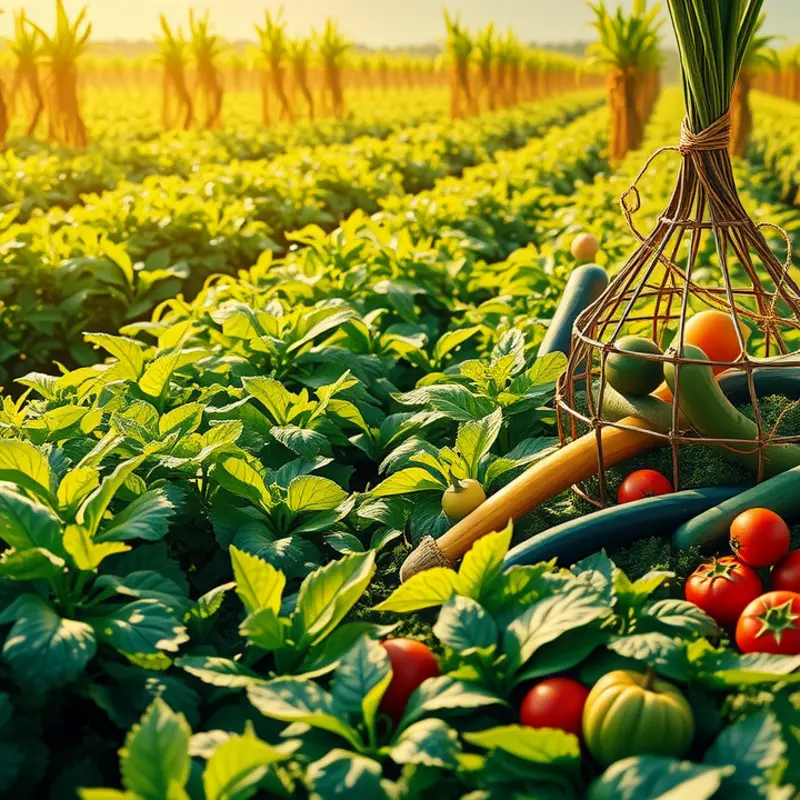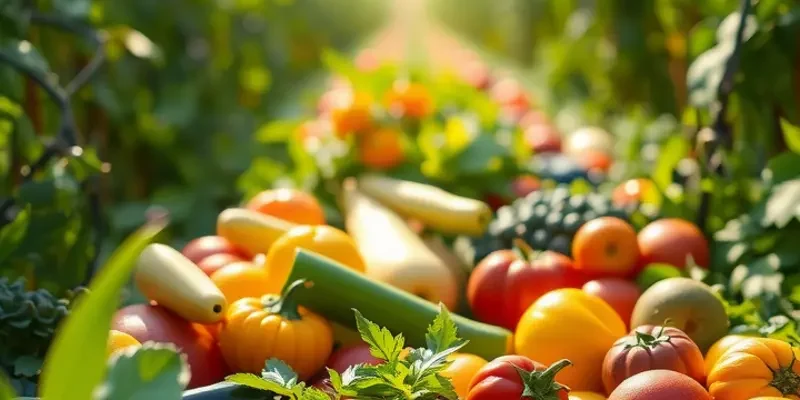Choosing eco-friendly food options is essential in creating a sustainable future. With the rise of environmentally-conscious shopping, individuals are empowered to make informed choices that benefit both their health and the planet. This guide provides practical tips and supportive strategies to navigate the world of green shopping effectively. Together, we can cultivate habits that minimize our ecological footprint while promoting nutritious food consumption.
Sustainable Sourcing: Understanding Labels and Certifications

The grocery store is filled with labels promising sustainability, but how do we know which ones truly matter? The first step in making eco-conscious choices is understanding key certifications on food packaging. These labels are more than just buzzwords; they reflect rigorous standards set by independent organizations.
Organic certification, for example, guarantees that no synthetic fertilizers or pesticides were used in the growing process. Organic farming supports biodiversity and reduces pollution, offering a meaningful impact on soil health and ecosystems. However, the organic label comes with its own set of interpretations. It’s important to confirm that the product is certified by a recognized body to avoid misleading claims.
Similarly, Fair Trade certification is another significant label to look for. It ensures that products meet social, economic, and environmental standards, focusing on safe working conditions, fair wages, and community development funds in the region of origin. Choosing Fair Trade products supports equitable trading relationships for marginalized producers.
When considering local products, the focus shifts to reducing the carbon footprint associated with transportation. Local items require less energy for storage and transport, directly supporting the regional economy. But what defines ‘local’? This can vary – ranging from within a state to a certain mile radius. Purchase from farmer’s markets or local food co-ops to ensure your selections are genuinely local.
In addition to these traditional labels, new certifications are emerging, such as Regenerative Organic Certification, which emphasizes practices that restore soil health, animal welfare, and social fairness. Understanding the landscape of these certifications empowers consumers to make decisions that align with their values.
However, not all labels signify genuine eco-friendliness. Terms like “natural” and “eco-friendly” often lack defined standards and can be used liberally without stringent guidelines. Consumers need to be mindful of such terms, understanding that they may not always mean what they imply.
For those looking to deepen their knowledge of product ingredients and make sustainable choices, exploring articles such as practical ingredient batching can offer insights into preparing meals that maximize freshness and reduce waste.
In this sea of labels, the discerning shopper must balance curiosity with skepticism. Learning the essentials of food labeling and sourcing practices equips consumers to navigate grocery aisles with confidence. This knowledge not only elevates your grocery choices but contributes positively to a greener planet.
Smart Shopping: Strategies for Eco-Friendly Choices

To make eco-friendly strides in your grocery shopping, begin with meal planning. By determining your meals for the week, you can create a detailed shopping list aimed at minimizing food waste and impulse buying. Embrace local and seasonal produce to reduce your carbon footprint and support sustainable practices. Seasonal fruits and vegetables not only taste better but are often more affordable and less resource-intensive due to reduced storage and transportation needs.
Creating a Thorough Shopping List
Once your meals are planned, draft a shopping list. This list should reflect necessary ingredients, categorizing them by sections of the store to streamline your shopping experience. A well-prepared list decreases the temptation of non-essential, often highly packaged items. Having a focused approach helps in cutting down both food and packaging waste, aligning your habits with eco-conscious values.
Opting for Bulk Purchases
Consider buying items you use frequently in bulk, such as grains, seeds, and nuts. Bulk purchasing not only cuts down on packaging waste but also offers savings over time. Bring along reusable containers or bags to further reduce dependency on single-use plastics. However, ensure you’re only buying what you will use to prevent spoilage and waste.
Supporting Local Farmers’ Markets
Frequenting local farmers’ markets presents a golden opportunity to discover fresh and diverse products. These venues provide direct benefits to regional farmers and promote a healthier exchange loop. They often feature organic options, minimizing the environmental detriments of pesticides and fertilizers. Through these markets, consumers can engage with producers, cultivating a better understanding of product origins and farming methods.
Understanding Seasonal Produce
Purchasing seasonal produce supports eco-friendliness by aligning consumption with natural growing cycles. Utilize online calendars or local resources to track what’s in season. This not only helps in cutting down on energy consumption associated with storage and transportation but also encourages a varied diet filled with diverse nutrients. For more tips on curbing waste in your kitchen, explore our low-waste cooking guide.
Incorporating these strategies into your grocery routine fosters a mindful, earth-conscious lifestyle. These conscious choices collectively help reduce waste, conserve resources, and encourage healthier ecosystems, promoting a sustainable future for our planet. Making small, deliberate changes in how you shop can significantly impact the environment, ensuring you contribute positively to a greener future.
Final words
Adopting earth-conscious shopping practices not only benefits your personal health but also significantly contributes to environmental sustainability. By understanding product labels, sourcing ethically, and employing mindful shopping strategies, you empower yourself to be a catalyst for positive change. Every informed choice you make sends a ripple effect throughout the community—encouraging sustainable practices, reducing waste, and supporting local economies. Take heart in knowing that small, consistent steps can lead to impactful changes for our planet’s future.








